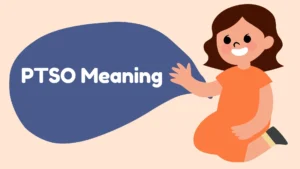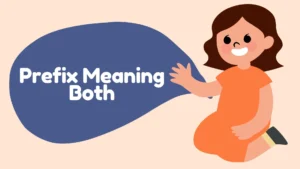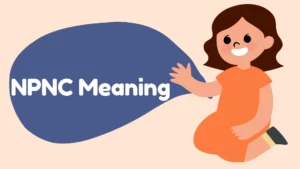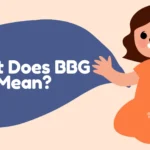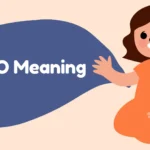Language is constantly evolving, and the meanings of words often shift depending on context, region, and culture. One such word that has sparked curiosity and multiple interpretations is “compa.” You may have heard it in Latin American music, casual conversations, or even on social media, but what does compa really mean? This term carries significant cultural weight and varies in usage across different Spanish-speaking communities.
Understanding words like compa helps bridge cultural gaps and gives deeper insights into how language functions as a social tool. Whether you’re learning Spanish, traveling, or just intrigued by global slang, knowing the meaning and usage of terms like compa is essential. This article dives deep into the origins, meanings, and modern uses of compa, providing you with everything you need to understand and use it confidently in the right contexts.
What Does “Compa” Mean?
The term compa is an informal Spanish word often used to refer to a friend, buddy, or companion. It’s a shortened version of the word compadre, which literally means “co-father” or “godfather,” particularly in the context of a child’s baptism. However, compa has taken on a much broader and more casual meaning in everyday language.
For example:
- In Mexico, compa is a common way to refer to a close male friend.
- In Central America, it can be used similarly, though sometimes with different tones depending on the region.
- In the U.S., especially in communities with a strong Latinx presence, compa is often used among young people in the same way one might use “bro” or “dude.”
Despite its simplicity, compa communicates a sense of loyalty and camaraderie. It’s a word that transcends age and can signal familiarity, trust, or shared identity—whether you’re at a party, sharing a beer, or just having a conversation.
Other Ways to Say “Compa”
Depending on the Spanish-speaking region and the closeness of the relationship, there are numerous alternatives to compa. Some include:
- Amigo – Friend (more formal or general).
- Carnal – A Mexican slang term for a close friend or “brother from another mother.”
- Cuate – Another Mexican slang term, very informal.
- Parcero – Common in Colombia, especially in Medellín.
- Pana – Popular in Venezuela, the Dominican Republic, and Puerto Rico.
- Bro / Hermano – Used across Latin America, especially among younger people.
Each of these carries a slightly different nuance. For example, carnal has deeper emotional ties than cuate, which might be used more casually. Knowing when to use these terms—and with whom—is key to sounding natural and respectful.
Definitions & Meaning
To fully understand compa, it helps to break it down:
- Etymology: Derived from compadre, which is a compound of com- (together) and padre (father).
- Literal Meaning: Godfather, co-parent (in a religious sense).
- Figurative Meaning: Friend, buddy, someone you trust and feel close to.
In modern usage, especially outside of religious or formal contexts, the word has shifted from its original godparent meaning to an everyday slang word that emphasizes closeness and shared experiences. It’s not uncommon to hear someone say, “¿Qué onda, compa?” which means, “What’s up, buddy?”
In essence, compa represents familiarity and kinship. It’s not just a label—it’s a verbal handshake between people who respect and care for each other.
Origins & History
The roots of compa lie in Spanish and Latin American religious and family traditions. Originally derived from compadre, this term traditionally described the relationship between a parent and a godparent in a child’s baptism. The godparent held a special role, acting as a spiritual advisor and protector—a kind of honorary family member.
Over time, the term compadre evolved in everyday speech. As it became more commonly used, people began to shorten it to compa. This abbreviation became popular especially in rural and working-class communities where casual language dominates.
By the late 20th century, compa had become embedded in various forms of media—music, television, and movies—especially in Mexico and Central America. With the rise of regional Mexican music like norteño and corridos, compa became synonymous with solidarity among working-class men. Today, it’s heard across Latin America and even in Latino communities in the U.S.
Example
Here are a few examples of compa in everyday use:
- In conversation:
- “Ey compa, ¿vas a la fiesta esta noche?”
- Translation: “Hey buddy, are you going to the party tonight?”
- “Ey compa, ¿vas a la fiesta esta noche?”
- In music lyrics:
- “Con mis compas en la peda, no hay quien nos pare.”
- Translation: “With my buddies at the party, no one can stop us.”
- “Con mis compas en la peda, no hay quien nos pare.”
- In text messages:
- “¿Qué onda, compa? Hace tiempo que no hablamos.”
- Translation: “What’s up, buddy? It’s been a while since we talked.”
- “¿Qué onda, compa? Hace tiempo que no hablamos.”
Each of these examples illustrates how compa can be used casually to refer to a friend, especially among men.
Usage in Different Contexts
Social Media:
On platforms like TikTok, Instagram, and Facebook, compa is often used in memes or captions to signal a laid-back, brotherly vibe. Phrases like “Puro compa vibes” or “El compa se pasó” (The dude went overboard) are common.
Professional Settings:
In most professional or formal environments, compa is usually avoided unless the workplace culture is especially relaxed or the team is very tight-knit. Even then, amigo or someone’s actual name is preferred.
Pop Culture:
In movies, telenovelas, and music—especially in genres like regional Mexican, banda, and corridos—compa is a staple term. Characters often use it to demonstrate loyalty or camaraderie.
Daily Life:
Among friends, especially in Latin America or in Latino communities abroad, compa is a default way to greet and refer to each other. It’s versatile, warm, and often said with a smile.
Common Misunderstandings & Clarifications
Despite its popularity, compa can sometimes be misunderstood:
- Not always gender-neutral: While primarily used for men, it’s not typically directed at women. The female equivalent could be comadre, though this has a slightly different connotation.
- Not always appropriate: In formal or unfamiliar situations, using compa might seem overly casual or disrespectful.
- Not universal: Not all Spanish speakers use or understand compa in the same way. For instance, someone from Spain or Argentina might not use this term at all.
Knowing when and how to use compa depends heavily on regional norms and the closeness of the relationship.
Alternatives & Synonyms
Here are some casual alternatives and their rough English equivalents:
| Spanish Term | Region Used | English Equivalent |
| Compa | Mexico, Central America | Buddy |
| Carnal | Mexico | Bro |
| Pana | Caribbean, Venezuela | Pal |
| Cuate | Mexico | Mate |
| Parce | Colombia | Dude |
| Socio | Southern Cone | Partner |
Each word carries its own regional flavor, so choose wisely based on where you are or who you’re speaking to.
Frequently Asked Questions (FAQ)
1. Is “compa” formal or informal?
Compa is highly informal and should be used with friends or peers, not in formal or professional settings.
2. Can women use or be called “compa”?
Traditionally, compa is male-oriented. Women might use comadre, but usage varies by region and social circle.
3. Is “compa” used in Spain?
Not commonly. Spaniards are more likely to use colega or tío for informal friendships.
4. What is the difference between “compa” and “compadre”?
Compa is a casual, shortened version of compadre. The latter has stronger ties to religious or formal relationships.
5. Is “compa” offensive?
No, it’s not offensive—unless used in a setting where casual language is inappropriate.
6. Can I use “compa” with strangers?
Use caution. If the vibe is friendly and informal, it might be okay. Otherwise, stick with amigo or names.
7. How do you pronounce “compa”?
It’s pronounced KOHM-pah, with emphasis on the first syllable.
Conclusion
The term compa is a beautiful example of how language evolves to reflect human connection, identity, and cultural heritage. What started as a religious title has transformed into a symbol of friendship and solidarity across much of Latin America and Latino communities worldwide. While informal, it carries powerful emotional weight, signaling trust and kinship in just two syllables.
Understanding words like compa not only enhances your vocabulary but also deepens your appreciation for the diverse ways we express closeness. Whether you’re chatting with friends, listening to music, or exploring new cultures, compa is one of those words that says a lot with very little.




